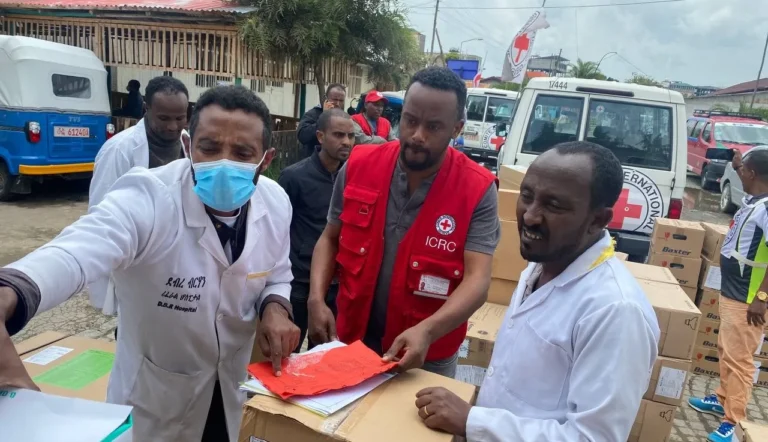Restrictions are exacerbating an already dire humanitarian crisis affecting 77,000 people in Bugna and Lasta districts, North Wollo Zone of Ethiopia’s Amhara Region, according to a report by the European Civil Protection and Humanitarian Aid Operations (ECHO) on Tuesday.
The regional government blamed local militia for the blockade amid ongoing fighting between government forces and Amhara militants also known as Fano.
The report notes that “telecommunications and banking systems are not working, and government structures have been absent for three months.”
It further state: “The lack of humanitarian assistance and low crop production, coupled with high food prices, have exacerbated food insecurity.”
According to the report, 79 percent of pregnant and lactating women and 70 percent of children are acutely malnourished, with 9.2 percent severely so.
“Health challenges include 5,747 reported cases of malaria and increasing instances of scabies,” it adds.
In addition, 77 percent of residents lack access to clean water, while only 35% of primary school-aged children are regularly attending classes.
“In-kind food distributions by the World Food Programme and the Ethiopian Red Cross Society have begun,” the report noted,” says the report, further noting that a Rapid Response Mechanism funded by ECHO has been activated to provide emergency nutrition, water, and sanitation support.
The worsening humanitarian situation comes amidst a militarised conflict between Ethiopian federal forces and non-state Fano militias in Amhara.
The unrest has led to civilian deaths, widespread school closures, and significant disruptions to aid delivery.
Commissioner of the Disaster Risk Management Commission, Ambassador Shiferaw Teklemariam, previously reported that security challenges in Bugna district have “hindered humanitarian aid access” but claimed the government has “sufficient resources and arrangements” to address the crisis.
MG/as/APA


